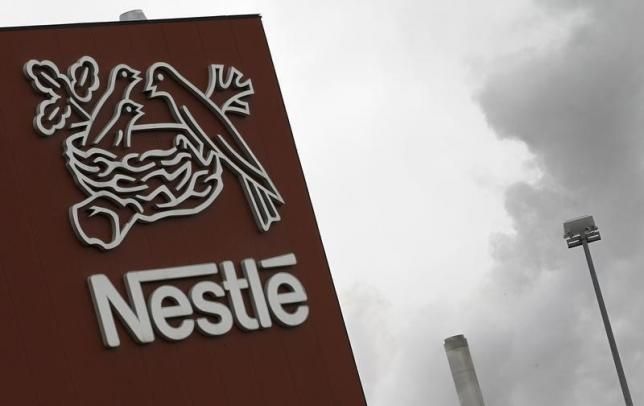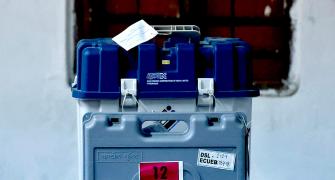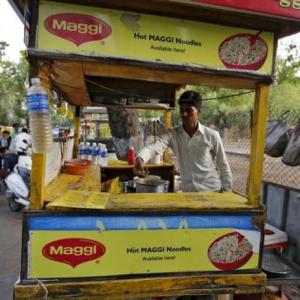 Yasmine Motarjemi, 60, who was Corporate Food Safety Manager at Nestlé from 2000 to 2010, was asked to leave because of a 'difference of opinion'.
Yasmine Motarjemi, 60, who was Corporate Food Safety Manager at Nestlé from 2000 to 2010, was asked to leave because of a 'difference of opinion'.
But she claims this was because she insisted the company audit its management practices and 'correct their wrongdoings'.
She has sued Nestlé for harassment, and several members of the company’s top management, including chief executive officer Paul Bulcke, have been summoned to a Swiss court in December 2015.
Motarjemi, a senior scientist for the World Health Organization’s food safety programme for 10 years before joining Nestlé, maintains the food company ignored her advice on various issues, including the need to be transparent on risks of products.
Also the writer of Food Safety Management -- A Practical Guide for the Food industry (2014), which received The American Publishers Awards for Professional and Scholarly Excellence this year, Motarjemi spoke to Business Standard over Skype from Nyon, Switzerland.
Edited excerpts:
Were there any food safety lapses or major controversies during the 10 years you worked as Nestlé’s food safety chief?
There, of course, were many technical problems at all levels. But these probably would have been occurring at any other company as well.
The fundamental problem was the company’s culture of fear and its attitude towards food safety management. People were afraid of reporting problems.
Also, more than lapses, it’s important to focus on how the management reacts when there are deviations from standards.
Would they behave ethically or would they knowingly release the products in silence, like Nestlé did in China in 2005, when levels of iodine in infant formula were found to be in violation of national regulatory limits?
Food giants like Nestlé ought to have independent structures to supervise food safety audits and to investigate incidents.
Instead, audit reports ended up on the same desk as of the person responsible for management of food quality.
Worse, in case of internal reporting of mismanagement, as in my personal case, there was retaliation instead of investigation.
Which products did you raise an alarm against and what happened to those?
Some of the food safety incidents I saw were industry-wide.
But Nestlé was not any better.
I did not see these as malevolent violations; it was always under some kind of force (regulatory, trade or reports of illness) that the company reacted to improve its system.
One of my early concerns was a lack of process for validating the nutritional composition of infant formula.
This was confirmed with reports from some operations that the infant formula was in violation with the national regulatory requirements.
Nestlé did nothing until another company experienced an incident where two babies died of lack of vitamin B1 and many more had neurological injuries.
There also was the case of baby biscuits in France where for at least two years the product on sale was causing choking of eight-month-old infants.
In 2009, Nestlé was caught in a major outbreak in the US, where 77 people became ill with the deadly bacteria E Coli O157 after eating Nestlé’s cookie dough raw.
Nestlé had failed to identify risks of E Coli O157 with the raw material, flour, and to properly communicate the risks of eating products raw, while this practice was known and reported in the scientific literature.
In India, Nestlé claims it has tested at least 2,700 samples of Maggi noodles and these tests represent 165 million packets of noodles. It says these tests have found levels of lead in the products within the food safety limits specified by the Indian authorities and, therefore, safe for consumption. Could this mean the regulator was wrong?
Such an explanation is a bit of a smokescreen.
It’s easy to be misled if you don’t know all the technical complexities.
Anyway, the period, quantity of products, frequency and sampling are not clear from these data.
From the time public health authorities have adopted the Hazard Analysis & Critical Control Points system worldwide, the idea of judging safety on the sole criteria of end-product testing has been abandoned.
This is because, in the case of occasional contamination (which could recur), there may not be a continuous contamination or uniform distribution of the agent, and testing of the final product may show discrepancies (and is therefore not the only sufficient proof for safety).
Under the HACCP system, (Nestlé says its factories are certified with the ISO 2200 standard, which requires HACCP to be in place), safety is judged on the adequacy of preventive measures; that is, the examination of the entire process of production and ensuring that those conditions (raw material, equipment maintenance, water sources, etc) are under control.
Test results are viewed as an additional verification measure, rather than proof of safety.
It’s being said Indian regulators were overzealous in their approach to Nestlé and are unfairly targeting it, when contamination of food products, milk and water is not rare in a number of other cases. Would you agree?
This should not be considered overzealous.
Criticising regulators could be very disempowering; it will discourage them from acting in public interest in future.
Regulators have a duty to protect public health and take precautionary measures when necessary.
That has happened in Europe as well (Italy in 2005 for infant formula, Belgium in 1999 for Coca-Cola).
Lead is a serious contaminant. I understand that if Indian regulators have reasons to believe products are contaminated with a dangerous agent, they need to take drastic measures for a product consumed on a large scale, until they can have a confirmation on safety.
Sometimes, authorities may also ask for a recall or ban of a product because the relation of trust has been broken.
This can happen, for instance, when they sense a company has contempt for regulatory requirements and knowingly markets products in violation of legislation.
In India, I understand, there also was a problem with the misleading labelling on MSG. Perhaps there were other problems as well.
You say you can help Indian regulators. How?
I think my expertise in food safety and my experience with Nestlé can help Indian authorities investigate possible management failures that have led to this incident. I could even testify in court if necessary.
My experience demonstrates a regulatory vacuum in regard to the supervision of multinational corporations at the international level. We have been focusing too much on compliance for products, giving latitude to companies to manage as they wish and relying on self-regulation.
However, we should realise that their management failures jeopardise consumer health.
The recent Mumbai court ruling seems to be in favour of Nestlé. Does this mean Nestlé could possibly be the victim of vendetta?
I do not have all the necessary information to answer that.
But if Indian food safety authorities have detected contaminated products, they have the right to take appropriate measures.
The fact that regulators have lost a court battle does not mean Nestlé has not violated the regulatory standards and that Nestlé is a victim.
It could be worth asking if there are gaps in the legislation and what regulatory authorities can do in times of safety standard violations.










